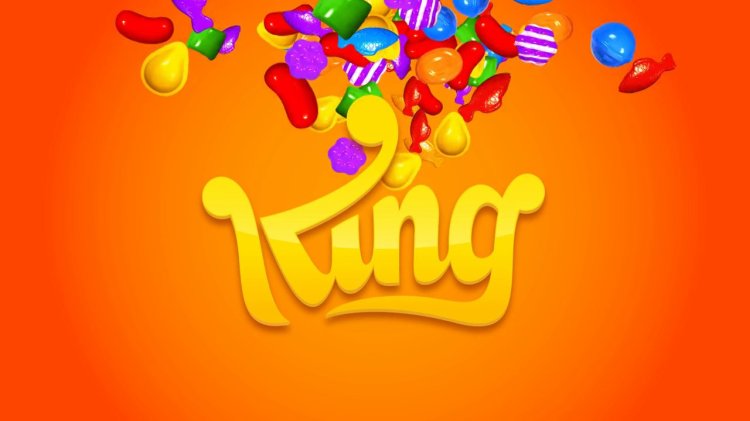The game industry and Wall Street are eagerly awaiting the initial public offering of King Digital Entertainment, which may raise more than $500 million at a $7.6 billion valuation as early as Wednesday.
The West hasn’t seen a major game company IPO since Zynga went public in 2011. And that was a bust after Zynga’s poor financial performance sent its stock downward, dashing the hopes that others would soon follow in its footsteps. If King is successful, it could open the doors for many others to raise money, both in the public and private sectors.
King made its gargantuan hit Candy Crush Saga with only three game developers. That hit generated a huge chunk of the company’s $1.89 billion in revenue in 2013, and now the company has 665 employees trying to knock out one hit after another. The European mobile and social game maker hopes that investors will buy its story that it will be a hit factory, churning out hits like Candy Crush for years to come.
Chris DeWolfe, the CEO of mobile and social game publisher SGN, said in an interview, “One or two events can have such a large impact on this industry. It’s incredible. The King IPO, everyone is watching that with an eagle eye. If they make the first two or three earnings calls, we’re smooth sailing for another six to nine months. If they stumble, it could have a disastrous effect on investment in our industry.”
Privco’s objections to investing in King
Not everyone is convinced. After first describing King’s user growth as “astonishing,” Privco said on Monday that it advised investors to avoid the King investment because of some major red flags. Privco is a private company-analysis firm headed by Sam Hamadeh, whose pronouncements about upcoming IPOs have often been controversial. But analyzing the numbers that Privco brings up yields some interesting observations for potential investors.
Privco pointed to six major problems that King faces, including the obvious one that King is overly reliant on revenues from a single game whose user base shows signs of a decline. Privco also noted that King’s metrics make its number of users look bigger than it is. It said that management and investors have already cashed out much of their ownership. Privco noted there is very little information on a development pipeline at King, and the risks seem very similar to Zynga’s IPO in 2011, which left investors feeling burned as the stock value fell from $9 billion to under $3 billion (it has now bounced back to $4.5 billion).
Of course, Privco’s stance has to be taken in context. Most of the figures that it cites come directly from King’s March 12 IPO filing document. It’s not like King is hiding these facts. It is pointing out the risks in its own business as it is required to do so by regulators.
Privco notes that 4 percent of King’s monthly unique users (MUUs) are paying customers. (That’s a relatively high percentage compared to some other companies.) The loss of these players could have a big impact on revenues. Privco noted that monthly unique players (MUPs) peaked in the first quarter of 2013 and have declined ever since. The average life span of players is around two to nine months, and Privco says that many of the paying Candy Crush players may soon reach the end of their life span.
“This will be a big risk for King as its business is based on its ability to keep its MUPs engaged,” Privco said.
Privco also said that the way King counts its users, which are based on industry practices, results in an inflated view. The number of monthly average users is 408 million. These include users who are double-counted since they play King games on multiple devices and King does not “de-duplicate” them. The number of monthly unique users (MUU) is only about 304 million. That shows the effects of double counting.
As for the over-reliance on Candy Crush, Privco noted that 78 percent of gross bookings came from Candy Crush in the fourth quarter. Between December 2013 and February 2014, Candy Crush’s daily active users increased from 93 million to 97 million. That means the growth of the game has dramatically slowed.
Privco also pointed out that management and investors have “cashed out.” In the six months leading up to the IPO, the King board paid $504 million in two separate dividends to management, investors, and other shareholders. King also gave “discretionary bonus units” to shareholders $58 million. Altogether, management, shareholders, and investors will receive cash payments of $621 million without having to sell any shares in the offering. Two other companies that did this prior to their IPOs were Zynga and Groupon.
“King has paid out more in dividends than it will raise in its IPO,” Privco said.
However, King did not point out one of the plain facts in the filing. Riccardo Zacconi, the CEO of King, holds about 10.4 percent of the overall shares of the company before the offering, and he will hold 9.5 percent of the shares after it. So management still owns a sizable chunk, and it truly hasn’t cashed out.
Privco also says that King hasn’t discussed much about its game pipeline, nor has it described how it is different from the once high-flying Zynga, which crashed after its IPO.


